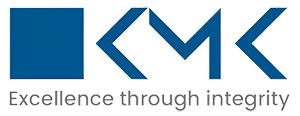Maximizing Real Estate Tax Savings: Cost Segregation Under the OBBB Act

The One Big Beautiful Bill (OBBB) Act, which President Donald Trump signed into law on July 4, 2025, has significantly impacted real estate tax savings. It has reinstated 100% bonus depreciation for qualifying properties acquired and placed in service after January 19, 2025. Before this Act, this provision was set to phase out, dropping to 40% for 2025. However, the OBBB Act makes it effectively permanent. In this blog, let us explore how to maximize real estate tax savings by utilizing cost segregation under the OBBB Act.
What is Cost Segregation?
Cost segregation is a tax strategy that enables real estate investors to increase their depreciation deductions on real estate. This is done by identifying and reclassifying building components with shorter depreciable lives. With cost segregation under the OBBB Act, these benefits become even more valuable because of the permanent 100% bonus depreciation.
How Does Cost Segregation Work?
Typically, a property is depreciated over 27.5 or 39 years, which spreads tax benefits across decades. A cost segregation study speeds this up by identifying parts of the property, such as personal property or land improvements, that can be depreciated over shorter periods, usually 5, 7, or 15 years.
This accelerated depreciation reduces taxable income and improves cash flow in the early years of ownership. When combined with cost segregation under the OBBB Act’s 100% bonus depreciation, the savings become even more significant, allowing investors to deduct the full cost of qualifying assets right away.
How Does It Benefit the Taxpayer?
This reclassification allows investors to accelerate depreciation deductions, resulting in higher tax deductions in the early years of ownership, reduced taxable income, and improved cash flow. For investors applying cost segregation under the OBBB Act, these benefits can compound quickly.
Key Takeaways
- How cost segregation works: A cost segregation study separates a property into different components, allowing faster depreciation and bigger tax savings.
- Qualifying properties under the OBBB Act: Not just real estate, but Qualified Improvement Property (QIP) and Qualified Production Property (QPP) may also benefit from accelerated depreciation and bonus depreciation.
- Why expert guidance matters: Given the complexity of IRS rules, businesses should rely on tax professionals and engineers for accurate cost segregation studies.
- When to do it: The best time to conduct a cost segregation study is when the property is first placed in service, so savings start immediately.
- Risks to keep in mind: Improperly executed cost segregation can trigger IRS scrutiny and may result in tax recapture when selling.
What are the Key Real Estate Tax Provisions Under the OBBB Act?
The OBBB Act has introduced several changes affecting real estate, most notably reinstating 100% bonus depreciation. Here is a clear picture that shows the key real estate tax provisions under this Act:
- 100% Bonus Depreciation: The OBBB Act permanently brings back 100% bonus depreciation for qualified property placed in service after January 19, 2025. This means businesses can deduct the full cost of eligible assets upfront instead of spreading it over years.
- QBI Deduction: The 20% Qualified Business Income (QBI) deduction for pass-through entities, widely used in real estate, is now permanent.
- Business Interest Deduction: Section 163(j) rules now use the more favorable EBITDA formula, which benefits real estate projects with heavy financing.
- Opportunity Zones: The OBBB Act revamps the Opportunity Zone program, makes it permanent, and adds new perks like rolling five-year gain deferrals and higher tax basis step-ups, especially for rural investments.
- Housing & Community Credits: The Low-Income Housing Tax Credit (LIHTC) gets a 12% permanent boost, while the New Markets Tax Credit (NMTC) is also extended permanently.
- Energy Credits: Some green building incentives (like Section 179D and 45L) will end for projects starting after June 30, 2026.
How Does Bonus Depreciation Under the OBBB Act Make Cost Segregation Powerful?
The OBBB Act makes cost segregation even more powerful. A cost segregation study separates parts of a property, like lighting, flooring, and equipment, that can be depreciated faster. With the OBBB’s 100% bonus depreciation, investors can then write off the full cost of these items right away. This is why cost segregation under the OBBB Act has become one of the most effective tax strategies for real estate investors.
Read Also: The One Big Beautiful Bill Act: Key Federal Tax Changes for 2025
How KMK Ventures Can Help
At KMK Ventures, we specialize in helping real estate investors make the most of tax-saving opportunities like cost segregation under the OBBB Act. Our team of tax experts and accounting professionals can guide you through the process, identify qualifying assets, and ensure compliance with IRS rules. With the proper planning, we help you reduce taxable income, improve cash flow, and maximize your return on investment.
Conclusion
The OBBB Act has made cost segregation one of the most effective tax strategies for real estate owners and investors. By combining a cost segregation study with 100% bonus depreciation, you can unlock significant tax savings and accelerate the financial benefits of your property investments. Still not sure how this applies to your situation? That’s where KMK Ventures comes in — blending expertise and personalized guidance to turn complex tax rules into real, measurable savings.
 Dev Kothari, a seasoned leader at KMK, heads the Special Teams, where he leverages his extensive expertise in managing large-scale accounting and tax return processing for U.S.-based clients. With a keen eye for workflow optimization and stakeholder collaboration, Dev drives exceptional efficiency and quality in high-volume project delivery. As a dual-qualified CPA (AICPA, Arizona) and Chartered Accountant (ICAI), Dev’s blend of strategic insight and technical prowess positions him as a key asset in ensuring KMK’s clients consistently achieve their financial goals.
Dev Kothari, a seasoned leader at KMK, heads the Special Teams, where he leverages his extensive expertise in managing large-scale accounting and tax return processing for U.S.-based clients. With a keen eye for workflow optimization and stakeholder collaboration, Dev drives exceptional efficiency and quality in high-volume project delivery. As a dual-qualified CPA (AICPA, Arizona) and Chartered Accountant (ICAI), Dev’s blend of strategic insight and technical prowess positions him as a key asset in ensuring KMK’s clients consistently achieve their financial goals.
Let’s Take Our Conversation Ahead
KMK is a top outsourced accounting and tax service provider. We offer end-to-end accounting and tax services for small to mid-sized businesses, with a team of 1000+ professionals, including certified public, chartered, and staff accountants.
USA:
651 N Broad St Suite 205, Middletown, DE 19709, USA
Phone: 310-362-2511
India:
300, Sankalp Square-3B
Sindhu Bhavan Marg,
Ahmedabad, Gujarat 380058
For Career: 91-98240-42996
Developed by Bluele | Copyright © 2025 | KMK Ventures Private Limited. | All Rights Reserved


